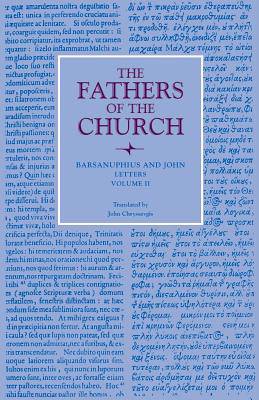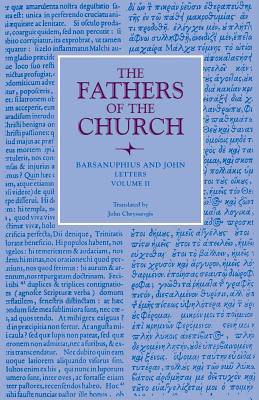
- Retrait gratuit dans votre magasin Club
- 7.000.000 titres dans notre catalogue
- Payer en toute sécurité
- Toujours un magasin près de chez vous
- Retrait gratuit dans votre magasin Club
- 7.000.0000 titres dans notre catalogue
- Payer en toute sécurité
- Toujours un magasin près de chez vous
72,95 €
+ 145 points
Description
The second volume of the Letters of Barsanuphius and John completes the collection of these monastic writings, which provided both spiritual and practical advice to a variety of sixth-century interlocutors from diverse walks of life. The two anchorites, having settled in an isolated location near Gaza, were in demand as trusted counselors, responding to questions on topics ranging from relationships within monasteries to problems of municipal taxation. Barsanuphius, the ""great old man,"" and John, the ""other old man,"" fulfilled their time-honored role as resident holy men in their locality, leaving behind a wealth of monastic wisdom as well as inspiration for all Christians. Distinctive to this volume are many colorful letters that will attract the interest of historians of this period. Some of these are responses to inquiries about specific problems of mundane life, such as veterinary treatment for a horse, the leprous disease of a household servant, and vandalism in a vineyard. Of broader applicability is the advice regarding such issues as the replacement of an unworthy bishop, the management of alms donated for the poor, and the quality of public entertainment in faraway Constantinople. The religious diversity of the Gaza region at this time, a century before the advent of Islam, generated questions about how Christians should interact with Jewish, pagan, and Manichaean fellow citizens. Abundant also are insights into the human heart. Barsanuphius and John offer timeless teachings on the inner warfare against resentful thoughts, temptations, doubts, anxieties, and reluctance to surrender oneself trustfully to God. They examine the human foibles arising from relationships among monks, and between monks and abbots, with a serene clarity resulting from these holy men's long experience with the introspective asceticism of the desert. Charity and humility, perpetual watchwords of the Christian life, are combined with prudence and discretion to create a literary corpus that both inspires and informs.
Spécifications
Parties prenantes
- Auteur(s) :
- Traducteur(s):
- Editeur:
Contenu
- Nombre de pages :
- 366
- Langue:
- Anglais
- Collection :
Caractéristiques
- EAN:
- 9780813226255
- Date de parution :
- 01-03-07
- Format:
- Livre broché
- Format numérique:
- Trade paperback (VS)
- Dimensions :
- 140 mm x 216 mm
- Poids :
- 462 g

Les avis
Nous publions uniquement les avis qui respectent les conditions requises. Consultez nos conditions pour les avis.






